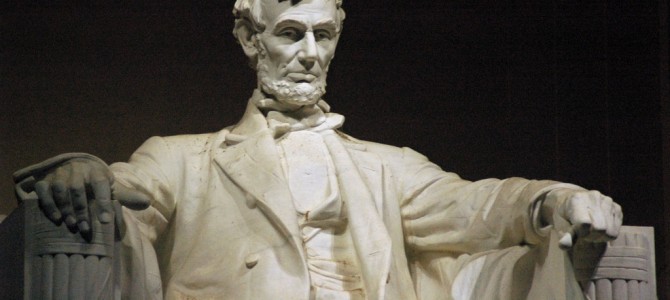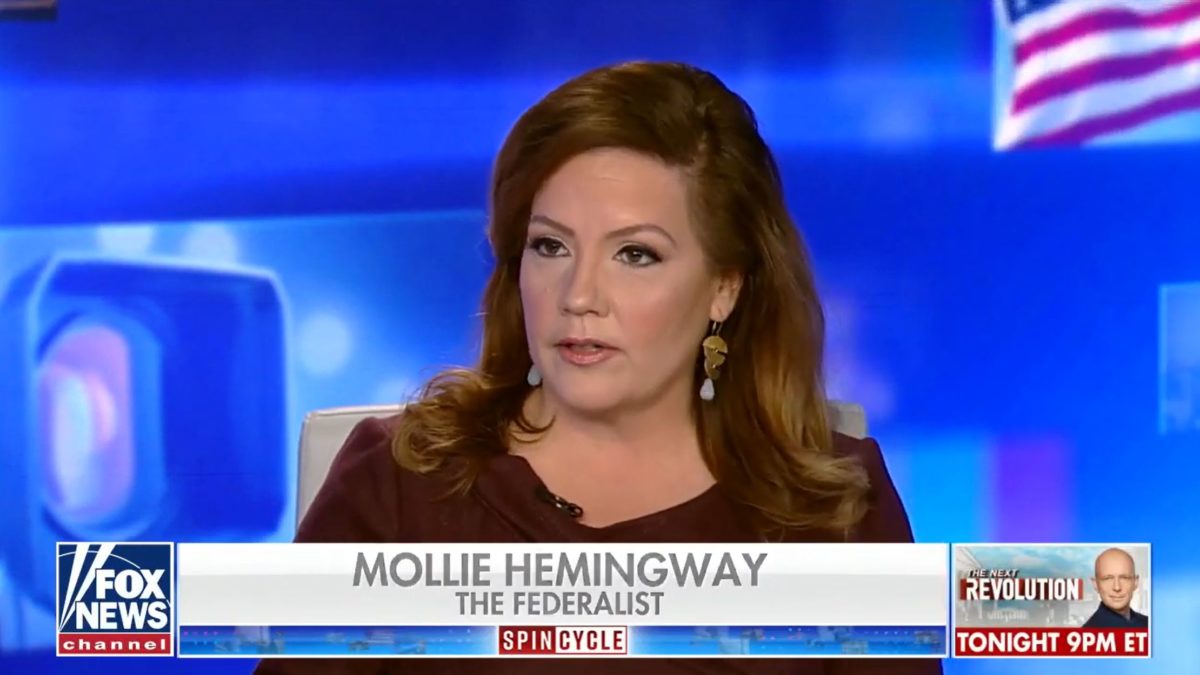
In the days surrounding President Obama’s 2009 inauguration, much was made of connections between Mr. Obama and his lightly-seasoned, former Illinois Congressman predecessor, Abraham Lincoln. Especially lauded was President Obama’s choice to include Democratic primary rival Hillary Clinton and Bush Defense Department holdover Robert Gates in a latter-day cabinet “team of rivals” (borrowing the name of Doris Kearns Goodwin’s 2005 bestseller about Lincoln’s leadership).
With the apparently forced departure of Gates’s replacement, former Republican Senator Chuck Hagel, more than one commentator has noted (see here and here) that the “team of rivals,” if it ever was, is certainly no more.
More important still is the deep gap that is now evident between the statesmanship of the two men, surprisingly well illustrated in the ways they use the words and wisdom of William Shakespeare.
Barry Edelstein, then director of New York City’s Shakespeare in the Park, opined in a 2009 New York Times essay titled “Shakespeare for Presidents” that Barack Obama, as an admirer of the Shakespeare devotee Lincoln, “seems primed to join the ranks of Bard-quoting presidents.” After all, the newly-elected president listed Shakespeare’s Tragedies as one of his favorite books on his Facebook site, and was obviously more intelligent than his predecessor, George W. Bush, who claimed he had “read three Shakespeares.”
Yet there’s been no Brave New World of a Bard-quoting Barack. Through six years, the President’s use of Shakespeare has been as uninformed as it has been infrequent. Mr. Obama’s allusion to Richard III in his First Inaugural (“in this winter of our hardship”) implies, in the context of the rest of the Duke of Gloucester’s telling soliloquy, that the president intends to turn good times to bad for his own advantage (paging conservative pop psychologists), rather than the opposite, as the rest of the inaugural address promised.
Meanwhile, the president’s accidental suggestion that England was 600 years past her prime in a 2011 Richard II-quoting toast to Great Britain’s Queen Elizabeth II (“This blessed plot, this earth, this realm, this England”) was luckily (for him) overshadowed by his misunderstanding of royal protocol during the playing of “God Save the Queen.”
President Obama, like many other appropriators of familiar literary references, uses Shakespeare where Shakespeare appears to make the president’s point: where, like a pretentious academic at a college or university cocktail party, he calls Shakespeare as a witness in making his already-prejudged case.
Lincoln found something different in Shakespeare, a wise instructor in the art of statesmanship, inextricably linked to the moral universe that both men inhabited across more than two centuries and three thousand miles of ocean. For Lincoln, Shakespeare’s art amounted to no mere play-writing for the sake of play-acting, but an effort to enable mankind to understand human affairs better. Lincoln was so adamant on this front that one scholar, Douglas L. Wilson, notably relates that the president told his portrait artist, “It matters not to me whether Shakespeare be well or ill acted; with him the thought suffices.” It was the substance, not the style, that mattered.
Lincoln’s close reading of the thoughtful Shakespeare was time well spent for an American president. Shakespeare’s corpus is filled with statesmen who are sometimes better at acting than leading. The difference between those leaders who effectively are able to keep (and/or resume) the peace and those putting on a good show is significant. Great leaders sometimes employ stagecraft in the pursuit of statecraft, but never as a substitute for it. Carefully-controlled “optics” and rhetorical “pivots” may be a necessary part of contemporary politics, but when these means are pursued like ends, the serious work of executive administration is neglected.
For example, consider a conflict involving Dakota Sioux, local settlers, and the Union Army that erupted in Minnesota during the Civil War. When the war ended, a military tribunal condemned 303 Dakota warriors to be hung, pending what was expected to be a perfunctory review of the matter by President Lincoln.
Instead, Lincoln carefully reviewed each case, granting clemency to the 265 for whom there was no direct link in the documentary record to the rape or murder of settlers. After Lincoln narrowly carried Minnesota in the 1864 presidential election, one local politician suggested he would have won more easily if he had hung more Indians. Lincoln replied in cold seriousness: “I could not afford to hang some men for votes.”
Nowhere is the president more powerful or the presidency more serious than in making the life-or-death decisions inherent in his roles as both commander-in-chief and, in light of his pardoning power, chief dispenser of the nation’s mercy. Alexander Hamilton links these powers in his brief Federalist 74, showing how both were wisely entrusted to a single executive by the Constitutional Convention.
In the essay, Hamilton builds upon his earlier argument in Federalist 70 that “[e]nergy in the Executive is a leading character in the definition of good government” by first highlighting the President’s constitutional role as “commander-in-chief”:
Of all the cares or concerns of government, the direction of war most peculiarly demands those qualities which distinguish the exercise of power by a single hand. The direction of war implies the direction of the common strength; and the power of directing and employing the common strength, forms a usual and essential part in the definition of the executive authority.
Given Hamilton’s earlier catalog of those things an energetic presidency would hopefully secure (the community against foreign attacks, a steady administration of the laws, property, and the people’s liberty), his defense of the executive as a singular commander-in-chief is entirely predictable. But less apparent (although conjoined in the first clause of Article II, Section II of the Constitution) is the connection between the advantages of having a President unilaterally administer mercy and war. What explains the connection? Hamilton writes:
But the principal argument for reposing the power of pardoning in this case to the Chief Magistrate is this: in seasons of insurrection or rebellion, there are often critical moments, when a well-timed offer of pardon to the insurgents or rebels may restore the tranquillity of the commonwealth; and which, if suffered to pass unimproved, it may never be possible afterwards to recall.
A president who can see the right moment and is willing to seize it can promote the public peace with a timely act of mercy just as, in other circumstances, he might do the same with an act of war. To do either, however, he must view himself as a vigilant defender of his regime’s (not his party’s) peace in all seasons.
Reduced to Lincoln’s terms, none but the most Richard III-like president would choose votes over lives. But it is not always obvious before one investigates that one is being asked to trade lives for votes–and we are all too comfortable trading at least the prosperity of some for the votes of others.
The political side of Progressivism, in fact, takes such choices for granted, as in the president’s executive amnesty, his original campaign promise to cut taxes for 95% of “working families” and raise them for the heavily-outvoted rest, and his myriad promises to promote the interests of the middle class.
Sometimes the political math adds up and sometimes–more recently for the president–it doesn’t. But such casuistry always subtracts from the true peace of the community. Much better to heed, as Lincoln so often did, Hamlet’s advice to the players come to perform at his castle:
Be not too tame neither, but let your own discretion
be your tutor: suit the action to the word, the
word to the action; with this special o’erstep not
the modesty of nature: for any thing so overdone is
from the purpose of playing, whose end, both at the
first and now, was and is, to hold, as ’twere, the
mirror up to nature; to show virtue her own feature,
scorn her own image, and the very age and body of
the time his form and pressure.
Application: Let political rhetoric serve political ends suited to the “very age and body of the time” and, in so doing, promote “a just and lasting peace among ourselves and with all nations.”
David Corbin is a Professor of Politics and Matthew Parks an Assistant Professor of Politics at The King’s College, New York City. They are co-authors of “Keeping Our Republic: Principles for a Political Reformation” (2011). You can follow their work on Twitter or Facebook.









